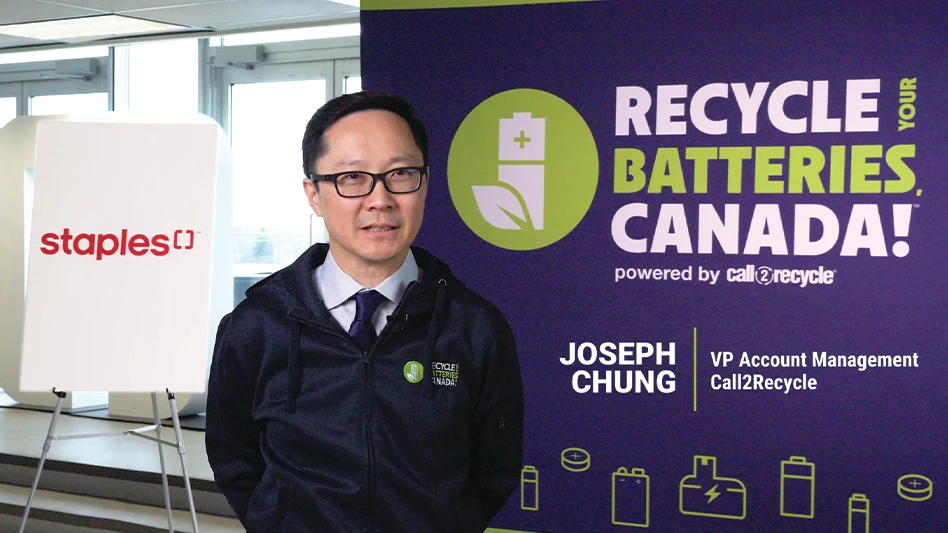SLOW FALL
Prices for old corrugated containers (OCC) have continued to fall, maintaining a cooling-off period that started last month following some price peaks in mid-summer.
The market for OCC has been generally weak, with orders tougher to schedule in many regions across most of the country. A California recycler reports weak prices on the export side hovering between $117 and $120 per ton on the West Coast. Some sources say typical seasonal forces may already be at work on the OCC market. Traditionally, early autumn sees the beginning of the busiest packaging season of the year as manufacturers prepare to ship massive amounts of goods in advance of the Christmas holidays. "You’re running into the high generation time for OCC," says one Midwestern recycler. "A lot of products are already being shipped for the holidays, which could be one reason that cardboard is harder to schedule."
A recycler based in the Southwest confirms that many mills seem to have high levels of inventory, a sign that generation is already increasing and that the export market is not picking up the excess. Sources report that China continues its months-long pattern of steady, but quiet, buying. "If China was very active, you’d see prices going up because supply would be sucked out of the country," a Texas recycler says.
Generation for print grades and ONP (old newspapers) tends to follow that of its packaging counterpart heading into the winter holidays, but this has yet to be seen. With the coming of Christmas, newspapers tend to grow thicker with additional advertisements. However, concerns over the economy may be delaying this effect, one source suggests. "The economy’s been iffy lately," he says. "So there are questions about what’s going to hold true this year," as far as typical generation patterns and market conditions are concerned.
One Midwestern recycler says that Bowater Inc.’s decision to curtail paper production at its Thunder Bay, Ontario, plant beginning Sept. 16 could cause some ripples in the ONP market. The two-to-four-week shutdown will affect Bowater’s newsprint and specialty papers customers, which could lead to a "pretty big disruption" in the news market, according to one source.
More news in printer’s grades is coming from the Midwest. One recycler says several of his customers have announced they will be discontinuing the use of uncoated groundwood—a grade similar to news, but without print ink—weakening the market for this specific grade.
The market for mixed paper has been true to its name, says one Northeast broker. He reports that some mills in the region have been doing their regular maintenance shutdowns, making the market somewhat inconsistent.
Sorted office paper (SOP), on the other hand, has remained relatively strong in recent weeks. Sources have also reported deinking grades and pulp substitutes delivering a balanced performance.
It’s business as usual for the most part concerning transportation of material. However, a California recycler reports that some domestic mills are having trouble moving material in California because it’s the growing season, and truckers fetch a higher price hauling produce than paper.
(Additional news about paper recycling markets, including breaking news and pricing, is available online at www.RecyclingToday.com.)
DEINKING MILL RECEIVES PCF CERTIFICATION
The Cascades Auburn Fiber Inc. mill, Auburn, Maine, has completed the Chlorine Free Products Association’s (CFPA) Sustainable Manufacturing & Marketing Initiative Totally Chlorine Free – Processed Chlorine Free (PCF) certification third-party auditing and passed the PCF requirements, making it the first mill in the United States to receive the designation. The mill had a ranking of 1,217 out of a possible 1,350.
This certification guarantees Cascades Auburn Fiber’s customers that the product they purchase meets or exceeds the stringent guidelines needed to make the PCF claim.
In unrelated news, Cascades’ Tissue Group has acquired the assets of Newstech MD, Hagerstown, Md. The plant, opened in 1995, has been idled since 1997. The facility, with two deinking pulp lines, has a capacity of 400 metric tons per day.
Suzanne Blanchet, president and CEO of Cascades Tissue Group, says, "This transaction enables us to acquire excellent production equipment at a very attractive price. Over the next few months, we will use them either to improve our production of deinking pulp or in the production of tissue paper."
Get curated news on YOUR industry.
Enter your email to receive our newsletters.

Explore the October 2006 Issue
Check out more from this issue and find your next story to read.
Latest from Recycling Today
- Recycled steel price crosses $500 per ton threshold
- Smithers report looks at PCR plastic’s near-term prospects
- Plastics association quantifies US-EU trade dispute impacts
- Nucor expects slimmer profits in early 2025
- CP Group announces new senior vice president
- APR publishes Design Guide in French
- AmSty recorded first sales of PolyRenew Styrene in 2024
- PRE says EU’s plastic recycling industry at a breaking point






